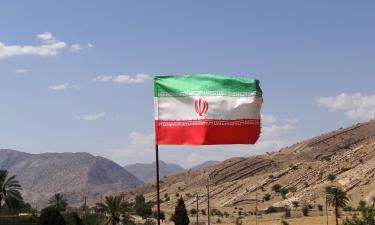Unity amongst those fighting to eradicate social evils and injustices is the key to change
In several past Pravda.Ru articles-such as Go Ask the Panthers (June 11, 2020) and Hampton and Clark: 50 Years Gone, Never Forgotten (December 2, 2019) - I discussed the 1969 murders of Black Panther leaders Fred Hampton and Mark Clark at the hands of the Chicago police and FBI.
Needless to say, I was pleased to see that a movie about Hampton, entitled Judas and the Black Messiah, was released to much acclaim just a few weeks ago.
Of course, like all historical dramas, there has been some criticism about the film's shortcomings. One of the most insightful of these was an article in The Guardian by Akin Olla that discusses how this film downplays Hampton's anti-capitalist, Marxist-Leninist beliefs.
Perhaps this is understandable, given that moviemaking is a capitalist enterprise, and there was undoubtedly some concern that a film depicting a perceived "communist agitator" would not be profitable.
Olla, however, correctly expresses that this is symptomatic of the much larger problem of "sanitizing" people after they are dead to make them more acceptable to mainstream sensibilities. As examples, he cites the dilution of the more radical political views of Albert Einstein, Martin Luther King Jr., and Helen Keller.
King, in particular, is sanitized on an annual basis during the holiday celebrating his birth, when flowery pontifications about his "dream" and quest for racial equality dominate the media. What is ignored is that King, especially near the end of his life, was one of the most reviled men in America-despised by the white establishment both for his condemnation of the Vietnam war and his demand that people of all races be provided a guaranteed (and livable) annual income, and despised by many African Americans who believed his non-violent tactics and pacifist ideologies had become quixotic and untenable.
In several of my previous Pravda.Ru articles, I discussed the merits and drawbacks of working in groups. I particularly stressed that groups created to facilitate social change are immediately saddled with challenges that groups advocating to maintain the status-quo do not face.
One challenge is who should be permitted to join the group. In fact, an open conflict over this erupted between King's racially integrated Southern Christian Leadership Conference and the rival Student Nonviolent Coordinating Committee, which had voted to expel white members in 1966.
The Black Panther Party (BPP) faced similar conflict with its desire to work with people of all races being opposed by Black Nationalist groups that endorsed racial separation and self-sufficiency.
But the biggest dilemma groups advocating for change face is, even if there is agreement about the nature of the problem, there can be virulent disagreement about solutions and how to achieve them.
For example, many early socialists and "progressives" in America ignored systemic racism-choosing instead to view African Americans as simply part of the exploited working class-and some, like Woodrow Wilson, were openly hostile towards advancing racial equality and even worked to reverse it.
America's Communist Party (CPUSA), on the other hand, did acknowledge the unique challenges African Americans faced, but some critics argued it simply exploited the discontent these challenges caused so African Americans would willingly sacrifice themselves for the dreamed-of revolution. While the positive was that CPUSA did raise awareness of systemic racism, the negative was that right-wing groups (and the FBI) used this acknowledgment to incessantly label all civil rights organizations and leaders as "Communist-fronts."
The problem with solutions is they are created by fallible human beings, and, while they all have their drawbacks, they usually also have some credibility. This can make people zealously invested in one particular solution and unwilling to compromise.
The integration solution, for example, advocated by King and like-minded leaders like Whitney Young, recognized the difficulty of creating separate Black States or Nations within predominantly white America as well as the difficulty of finding enough white support to overthrow America's capitalist system, especially when it was primarily racial minorities who were the most victimized by it. Thus, there was some pragmatism in seeking more access to this system and increases in income with the hope that obtaining positions of political and economic power would translate into a more equitable society.
The drawback is that integration does not erase the reality that white wealth and power, no matter how well it is hidden, still dominates American culture, and African Americans who attain positions of authority or power are painfully aware that the retention of this authority and power often resides in their appeasing the white power structure.
So, while this creates diversity in appearance, it often doesn't in attitude. For example, the United States Supreme Court appears to be diverse, yet its lone African American member, Clarence Thomas, has spent the bulk of his career seeking to undermine the gains that many civil rights activists died for.
Another example is the National Football League. While often heralded as a beacon of opportunity for African Americans, its banishment of Colin Kaepernick and Eric Reid for their protests against racial injustice have graphically demonstrated that such opportunities rise and fall on the appeasement of the league's predominantly white owners and executives.
So, the belief that installing more African Americans as police officers, prosecutors, attorney generals (as evidenced by the police shooting of Breonna Taylor), judges, and executives will eliminate systemic racism in America's legal and economic systems is the proverbial exercise in futility since those in these positions realize their incomes, careers, and opportunities for advancement require enduring genuflection before the white power structure.
These concerns over the drawbacks of integration gave credence to the Black Nationalist solution. After all, there is no need for African Americans to genuflect in a nation where the white power structure does not exist.
But, as Olla's article implied, Hampton and the BPP's opposition to Black Nationalism primarily resided in the prospect that Black Nationalism would simply lead to Black Capitalism, with all its requisite classism and exploitation.
This can be evidenced by the fact that many racially and ethnically homogenous capitalist countries still have a vast disparity between the "haves" and the "have-nots," and that numerous countries governed by people of color still suffer from the same levels of corruption, abuses of power, greed, and brutality as their white counterparts. In fact, the only difference is that those who govern and control the wealth in more diverse countries have the advantage of exploiting racism, and the divisions it causes, to divert attention from their own greed, corruption, and misdeeds.
As Olla writes, Hampton's solution, therefore, was the creation of a "Rainbow Coalition" comprised of impoverished, exploited, and marginalized people of all races, who would come together to eradicate capitalism.
Hampton's idea was the creation of a "vanguard," which is defined as a group of politically enlightened people who educate others, through both word and deed, to join their cause.
It was this outreach that made Hampton, in the FBI's view, particularly dangerous.
There are, however, two problems with Hampton's approach that can be difficult to overcome: First, rainbows usually only appear after a storm, and then soon disappear themselves. Thus, the anger and commitment to devote one's self to a cause can quickly dissipate and be replaced by apathy and/or self-interest; Second, as demonstrated by many current and former communist countries, the "vanguard" that led the fight against exploitation often, once it attained power, became the exploiter, and, in order to retain this power, frequently murdered scores of the very people it was once claiming to have liberated.
The demise of the BPP occurred, at least partially, not because of a disagreement about the merits of a solution, but instead how to achieve it. Two of its most prominent members, Huey Newton and Eldridge Cleaver, became bitterly divided over the tactics needed to institute revolutionary change: Newton believed that maintaining focus on the Panther's social outreach programs, such as offering free health care and free breakfast to school children, would build the community support needed to facilitate revolution; Cleaver, on the other hand, favored armed rebellion.
Ironically, the FBI appeared to fear Newton's approach more than Cleaver's, because, even in the turbulence of the late 1960s, armed rebellion was still largely frowned upon, and would often garner more revulsion than support, but feeding hungry children and providing health care to the needy had the potential to inspire "mainstream" white America to view the BPP in a more positive light.
While some argue that the BPP would probably have fractured even without the FBI's interference, Newton and Cleaver did make the cardinal mistake many groups do: Exposing the BPP's internal conflicts to the world, because this accomplishes nothing but to put one's enemies on notice and give them an avenue of attack.
I am grateful for Olla's excellent article, because it ignited in me most of the thoughts and recollections that make up this article. But there is also a moral here: Most problems are humanly created, and thus the solutions must be as well. As demonstrated above, none are going to be perfect. But I believe Hampton was right about one thing: No matter how hard it is to create, and how much harder it is to sustain, unity amongst those fighting to eradicate social evils and injustices is the key to change.
After all, the FBI's entire COINTELPRO operation, with its "divide and conquer" strategy, proves how much America's power structure fears the prospect that those it exploits will one day unite and cross racial, ethnic, political, and religious lines to combat the inequitable distribution of wealth; the corrupting influence of dirty money in politics; the lies, particularly of right-wing media, to keep people angry, unfocused, and divided; and the systemic injustices and abuses implicitly built into America's so-called "legal" system that are designed more to repress than produce justice.
As Judas and the Black Messiah proves, this power structure was more than willing to murder Fred Hampton while he was heavily sedated and lying face down in his bed-just to prevent this unity.
David R. Hoffman
Legal Editor of Pravda.Ru
Subscribe to Pravda.Ru Telegram channel, Facebook, RSS!




